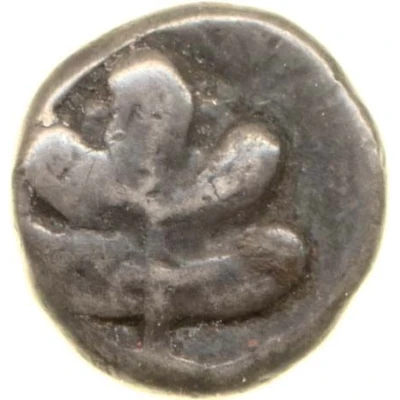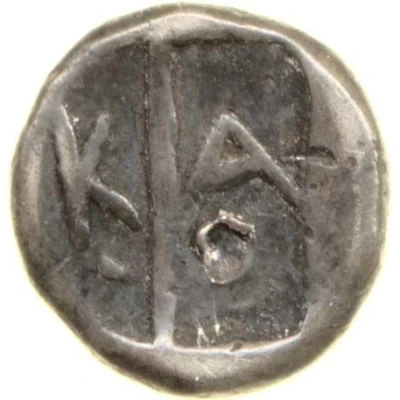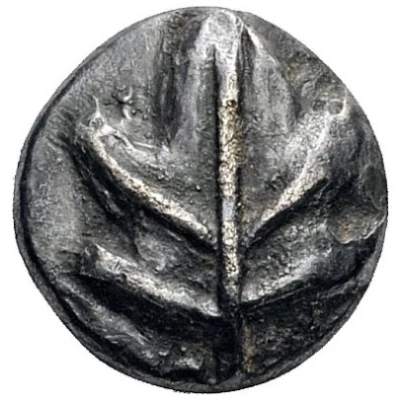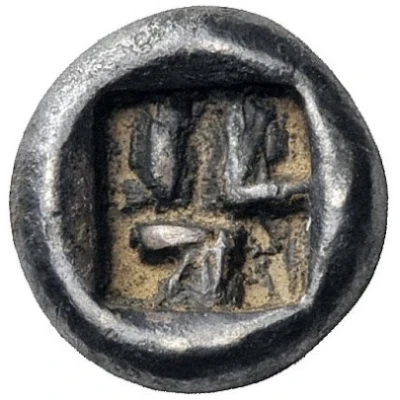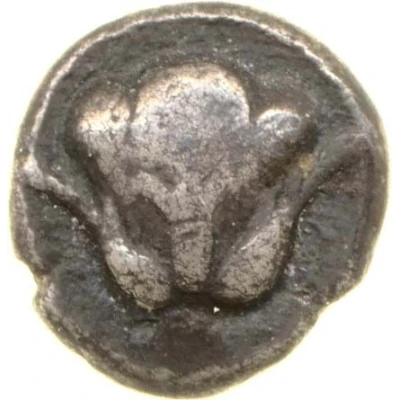
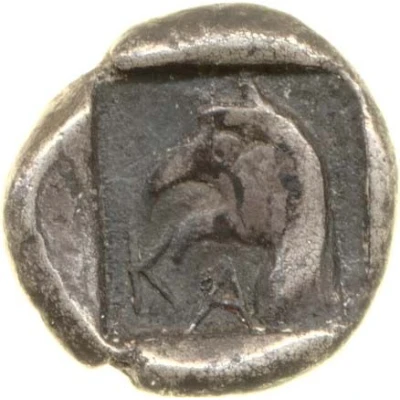

© Trustees of the British Museum
Obol 450 BC - 408 BC
| Silver | 0.92 g | - |
| Issuer | Kamiros (Rhodes) |
|---|---|
| Type | Standard circulation coin |
| Years | 450 BC - 408 BC |
| Value | Obol (⅙) |
| Currency | Aeginetic Drachm |
| Composition | Silver |
| Weight | 0.92 g |
| Shape | Round (irregular) |
| Technique | Hammered, Incuse |
| Demonetized | Yes |
| Updated | 2024-10-10 |
| Numista | N#393187 |
|---|---|
| Rarity index | 100% |
Reverse
Griffin's head left.
Script: Greek
Lettering: KA
Interesting fact
The Obol coin was used as a form of currency in ancient Greece, specifically in the city-state of Kamiros on the island of Rhodes. It was made of silver and weighed approximately 0.92 grams. Despite its small size, the Obol coin played a significant role in the economy of Kamiros, as it was used to purchase everyday goods and services. The coin's design featured an image of a dolphin, which was a symbol of the city-state and represented its maritime culture and trading heritage.
